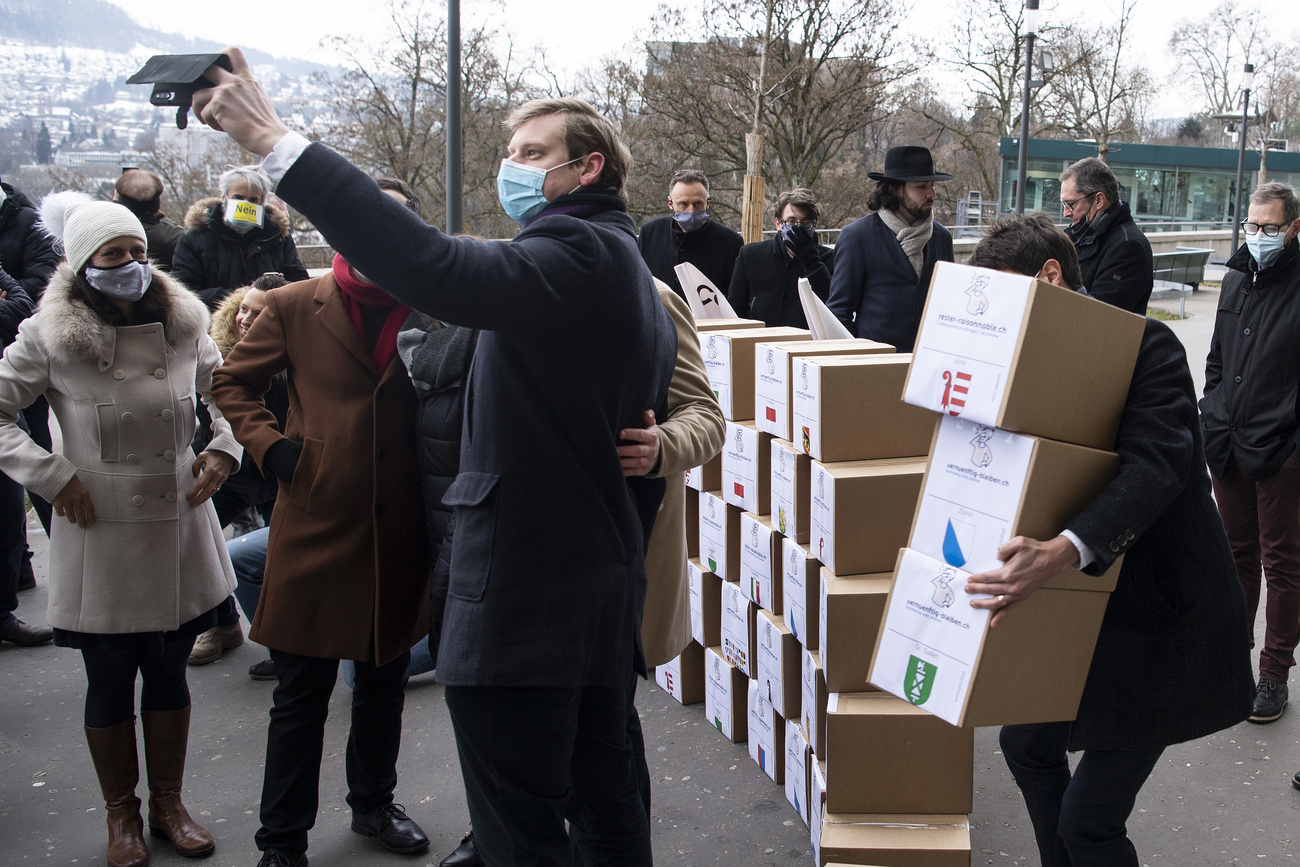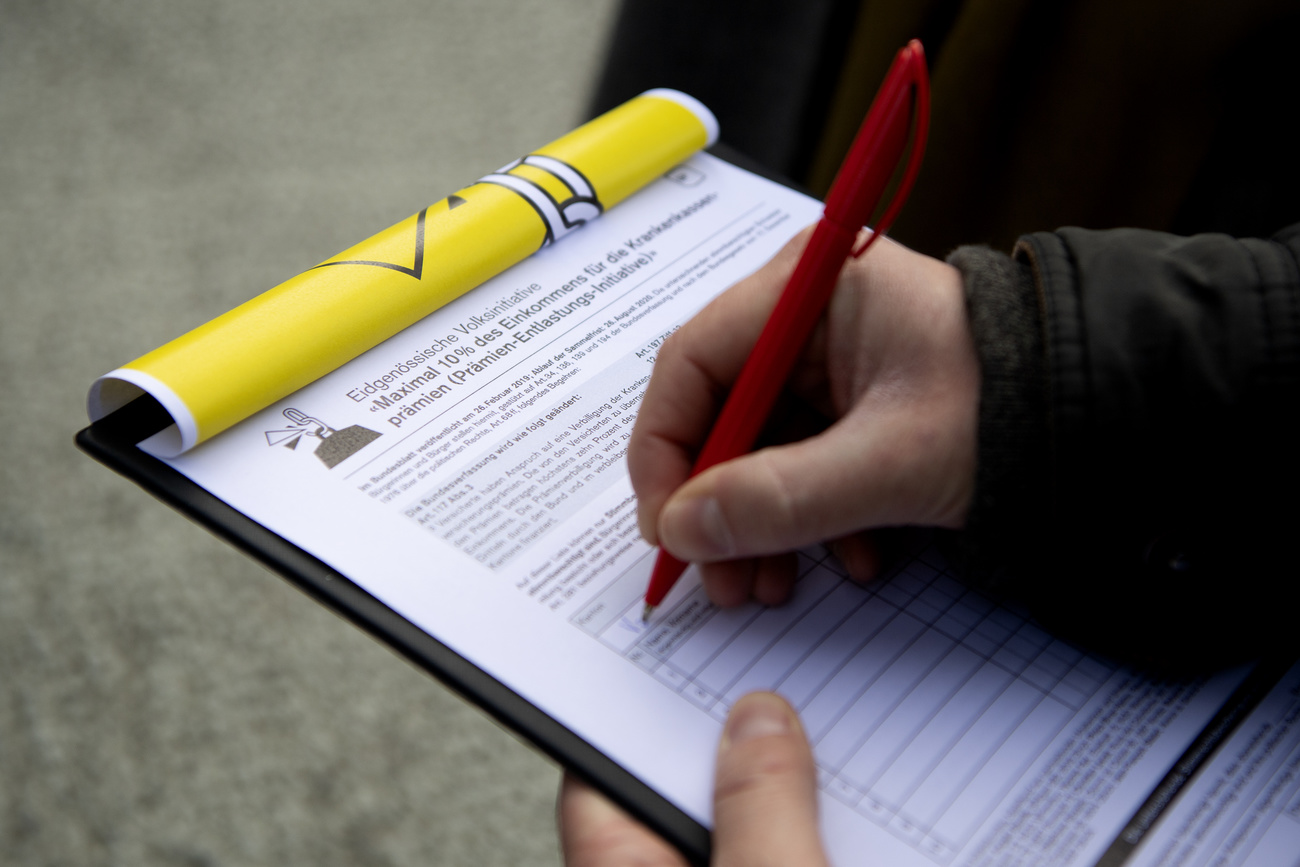
Climate and Covid laws set to come to public vote

Campaigners have handed in signatures in a bid to bring two recently passed laws to a national vote: the Covid-19 Act underpinning the government’s pandemic action, and the so-called CO2 law to tackle the climate crisis.
The campaigns, which are not linked, handed in their documents to the Federal Chancellery in Bern on Tuesday. Both managed well over the 50,000 signatures necessary (within a three-month period) to bring a piece of legislation to a nationwide referendum.
The first, against a climate law passed by parliament last September, is backed by a diverse group representing various economic, transport, and energy interests. It also has the support of the country’s biggest political group, the right-wing People’s Party.
According to this group – who handed in a total of 110,000 signatures on Tuesday – the CO2 law is “costly, inefficient, bureaucratic, and leads to too much state power”.
The CO2 law contains various measures to reduce Swiss greenhouse emissions in line with the 2015 Paris Agreement on climate change. The measures include new taxes on airline flights, rules for more climate-friendly buildings, and tighter targets for vehicle emissions.
Christian Imark of the People’s Party said on Tuesday that the law was “simply about money, but will have no measurable impact on climate policy”.
Debates and campaigning around this vote look set to be heated and fragmented: while some left-wing groups are also against the law (they say it is too weak to achieve climate goals), various other economic groups already came out on Tuesday in favour it, as did major ecological associations including Greenpeace and the World Wildlife Fund.

More
What’s a referendum?
Retroactive
The second campaign takes aim at the Covid-19 ActExternal link. This law, also ratified in September last year, enshrines in normal (rather than emergency) legislation the actions taken by the government to counter the coronavirus pandemic.
It was enacted in a bid to close gaps in legislation that appeared when the government ended the “extraordinary situation” it had announced last spring.
But for the “friends of the constitution” group behind the referendum, this legislation is unnecessary, since it mainly covers financial measures that the government could do using standard federal decrees.
The campaigners also reckon the law could pave the way to an obligatory vaccination campaign using hastily-tested medicines.
Authorities have denied this would ever become the case, and that the vaccination campaign – which changed colour on Tuesday with the approval of a second vaccine by Moderna – would remain completely optional for the entire population.
Both referendums will not be put to voters before June at the earliest. By that time, the Covid-19 Act would already have been in force for nine months.

More
Virus continues to infect citizen initiatives and referendums

In compliance with the JTI standards
More: SWI swissinfo.ch certified by the Journalism Trust Initiative































You can find an overview of ongoing debates with our journalists here . Please join us!
If you want to start a conversation about a topic raised in this article or want to report factual errors, email us at english@swissinfo.ch.